In January 2010, a twelve-day trial was held before the Federal District Court.┬Ā Plaintiffs presented 17 witnessesŌĆöincluding the worldŌĆÖs leading experts in history, economics, political science, psychology, sociology, anthropology, child development and epidemiology.┬Ā Proponents presented just two witnesses.
Day 1,┬Ā January 11: Plaintiffs Take the Stand
Jeff Zarrillo, Plaintiff 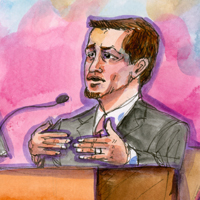
“When someone is married, and whether it’s an introduction with a stranger, whether it’s someone noticing my ring, or something of that nature, it says to them these individuals are serious; these individuals are committed to one another; they have taken that step to be involved in a relationship that one hopes lasts the rest of their life.”
Paul Katami, Plaintiff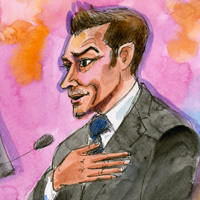
“I just want to get married ŌĆ” it’s as simple as that. I love someone. I want to get married. My state is supposed to protect me. It’s not supposed to discriminate against me.”
Kris Perry, Plaintiff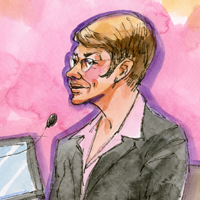
“I want to marry Sandy. I want to have a stable and secure relationship with her that then we can include our children in. And I want the discrimination we are feeling with Proposition 8 to end and for a more positive, joyful part of our lives to begin.”
Sandy Stier, Plaintiff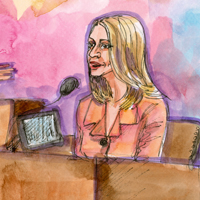
“I’m just trying to get the rights that the Constitution already says I have.”
Day 2,┬Ā January 12: The History of Marriage
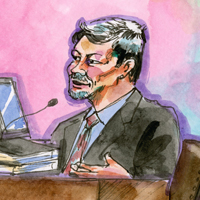 Dr. George Chauncey, Professor of History, Yale University
Dr. George Chauncey, Professor of History, Yale University
“[T]he wave of campaigns that we have seen against gay marriage rights in the last decade are, in effect, the latest stage and cycle of anti-gay rights campaigns of a sort that I have been describing; that they continue with a similar intent and use some of the same imagery.”
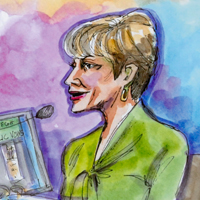 Dr. Nancy Cott, Professor of American History, Harvard University
Dr. Nancy Cott, Professor of American History, Harvard University
“The institution of marriage has always been at least as much about supporting adults as it has been about supporting minors, children, as the proponents tend to emphasize the child’s side.”
…
“[T]he fact that the state is involved in granting these kinds of benefits and legitimacy to the marital family tends to lend a prestige, a status to that institution that no informal marriage has ever approximated.”
Day 3,┬Ā January 13: The Importance of Marriage
 Dr. Letitia Anne Peplau, Professor of Psychology, University of California, Los Angeles
Dr. Letitia Anne Peplau, Professor of Psychology, University of California, Los Angeles
“It is very hard for me to imagine you would have a happily-married couple who would say, ‘Gertrude, we’ve been married for 30 years, but I think we have to throw in the towel because Adam and Stuart down the block got married.’”
…
“[I have] great confidence that some of the things that come from marriage, believing that you are part of the first class kind of relationship in this country, that you are ŌĆö that you are in the status of relationships that this society most values, most esteems, considers the most legitimate and the most appropriate, undoubtedly has benefits that are not part of domestic partnerships.”
Day 4┬Ā January 14: The Meaning of Marriage
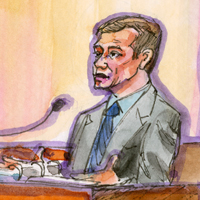 Dr. Ilan H. Meyer, Professor of Clinical Sociomedical Sciences, Columbia University
Dr. Ilan H. Meyer, Professor of Clinical Sociomedical Sciences, Columbia University
“I don’t know if [domestic partnership] has any social meaning. … It is, I think, quite clear that young children do not aspire to become domestic partners. But, certainly, the word ‘marriage’ is something that many people aspire to.”
Day 5, January 15: The Benefits of Marriage
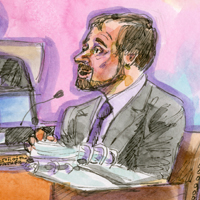 Dr. Michael Lamb, Professor of Psychology, University of Cambridge
Dr. Michael Lamb, Professor of Psychology, University of Cambridge
ŌĆ£[We have] a much larger body of research focused on this question documenting very conclusively that a child being raised by gay and lesbian parents are just as likely to be well-adjusted as children raised by heterosexual parents.”
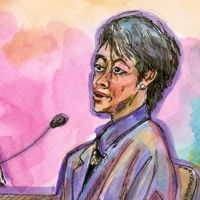 Helen Zia, journalist and scholar
Helen Zia, journalist and scholar
“My mother is an immigrant from China. English is her second language. She really doesn’t get what partner is. … Marriage made it very clear that I was family, that we are family, and where we stand.”
Day 6, ┬Ā January 19: The Harm of Prop. 8
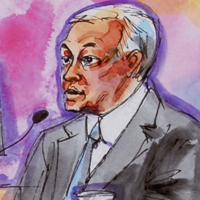 Hon. Jerry Sanders, Mayor of San Diego
Hon. Jerry Sanders, Mayor of San Diego
“If [the] government tolerates discrimination against anyone for any reason, it becomes an excuse for the public to do exactly the same thing.”
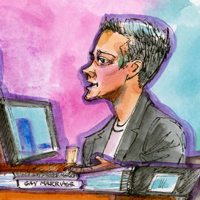 M.V. Lee Badgett, Professor of Economics, University of Massachusetts Amherst
M.V. Lee Badgett, Professor of Economics, University of Massachusetts Amherst
“Prop. 8 has inflicted substantial economic harm on same-sex couples and their children who live here in California.”
Day 7,┬Ā January 20: A History of Discrimination
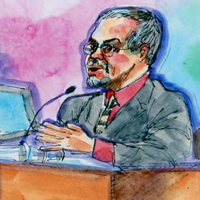 Dr. Gary M. Segura, Professor of Political Science, Stanford University
Dr. Gary M. Segura, Professor of Political Science, Stanford University
“There is no group in American society who has been targeted by ballot initiatives more than gays and lesbians. They have essentially lost a hundred percent of the contests over same-sex marriage. The initiative process has been really the Waterloo of gay and lesbian politics.”ŌĆō
Day 8,┬Ā January 21: Adverse Witness Testimony
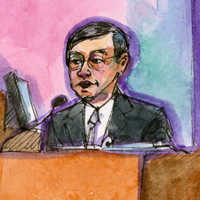 Hak-Shing William Tam, Official Proponent of Prop. 8
Hak-Shing William Tam, Official Proponent of Prop. 8
“Marriage equality leads to “the moral decay of a liberal country.”
…
“If Proposition 8 loses, one by one other states would fall into Satan’s hand.”
Day 9,┬Ā January 22: Medical Expertise
“[T]he American Psychiatric Association, the American Psychological AssociationŌĆ”. the major professional mental health associations have all gone on record affirming that homosexuality is a normal expression of sexuality, that it is not in any way a form of pathology.”ŌĆō Gregory Herek, Professor of Psychology, University of California, Davis
Day 10 , January 25: Prop. 8 ProponentsŌĆÖ Witness Testimony
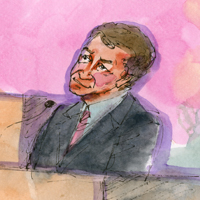 Dr. Kenneth P. Miller, Associate Professor of Government, Claremont McKenna College
Dr. Kenneth P. Miller, Associate Professor of Government, Claremont McKenna College
ŌĆ£My view is that at least some people voted for Proposition 8 on the basis of anti-gay stereotypes and prejudice.ŌĆØ
Days 11 -12,┬Ā January 26-27: Prop. 8 ProponentsŌĆÖ Witness Testimony
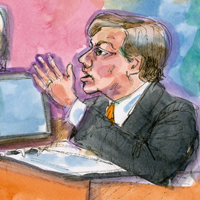 David Blankenhorn, Founder and President, Institute for American Values
David Blankenhorn, Founder and President, Institute for American Values
ŌĆ£Same-sex marriage would likely contribute to more stability and to longer-lasting relationships for committed same-sex couples.ŌĆØ
…
ŌĆ£Gay marriage would be a victory for the worthy ideas of tolerance and inclusion. It would likely decrease the number of those in society who tend to be viewed warily as ŌĆśotherŌĆÖ and increase the number who are accepted as part of ŌĆśus.ŌĆÖ In that respect, gay marriage would be a victory for, and another key expansion of, the American idea.ŌĆØ
…
ŌĆ£Gay marriage would extend a wide range of the natural and practical benefits of marriage to many lesbian and gay couples and their children.ŌĆØ
…
ŌĆ£I believe homophobia is a real presence in our society.ŌĆØ
…
Q. [Boies] ŌĆ£And you say: ŌĆśIn that sense insofar as we are a nation founded on this principle, we would be more, emphasize more, American on the day we permitted same-sex marriage than we were on the day before.ŌĆÖ And you wrote those words, did you not, sir?ŌĆØ
A. [Blankenhorn] ŌĆ£I wrote those words.ŌĆØ
Q. ŌĆ£And you believe them now, correct?ŌĆØ
A. ŌĆ£That’s correct.ŌĆØ
…
ŌĆ£Extending the right to marry to same-sex couples would probably mean that a higher proportion of gays and lesbians would choose to enter into committed relationships.ŌĆØ┬Ā ŌĆōMr. Blankenhorn

